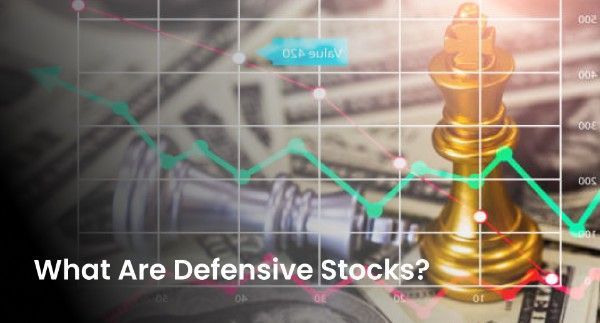Nifty vs Sensex: A Detailed Comparison

The Nifty and Sensex are two of the most important indices in the Indian stock market. They are both broad market indices, meaning that they each consist of large and highly liquid stocks. The two indices are also benchmarks that are used to gauge the performance of other securities in the market, as well as the performance of the overall market itself.
However, the similarities end here. There are also many points of difference between the Nifty and Sensex. Understanding these differences can help you get more clarity about the stock market. However, to get clear insights into the Nifty vs Sensex comparison, you need to first understand the concept of a stock market index.
What is a Stock Market Index?
A stock market index is a statistical tool that consists of a specific set of stocks, which represent a segment of the stock market. They can represent the broad market or may be specific to different market sectors.
There are also stock market indices that have stocks representing different market capitalizations like large-cap, mid-cap and small-cap segments. While you cannot invest directly in stock market indices, you can use them to track the market at large or even specific sectors of the market.
A Closer Look at the Nifty 50 and Sensex
The Nifty 50 and Sensex are both broad market indices, so they consist of stocks from various market sectors. Let’s take a closer look at each of these two benchmark indices before exploring the many areas of difference between the Sensex and Nifty.
Nifty 50
One of the most tracked indices worldwide, the Nifty 50 was launched on April 22, 1996. It is the benchmark index of the top 50 stocks trading on the National Stock Exchange (NSE). These are all large-cap stocks that are selected based on the following criteria:
- Domiciliary status
- Registration on the National Stock Exchange
- Listing History
- Trading frequency
- Average market impact cost
The word ‘Nifty’ is a combination of the two words ‘national’ and ‘fifty.’ The index itself is calculated using the free-float capitalization method.
Sensex
The Sensex, which was launched on January 1, 1986, is the oldest index in the Indian stock market. It is the benchmark index of the Bombay Stock Exchange (BSE) and consists of the top 30 stocks traded on the exchange. These stocks are selected by the BSE based on the following criteria:
- Listing history on the BSE
- Liquidity
- Market capitalization
- Average number of trades per day
- Average value of shares traded per day
- The assessment of the Index Committee
The word ‘Sensex’ is also a combination of two words: ‘Sensitive’ and ‘Index.’ It is also computed using the free-float market capitalization method, just like the Nifty 50.
Nifty 50 vs Sensex: A Comparison
Despite some similarities between these two broad market indices, there are many differences between the Nifty and Sensex. These aspects are summed up in the table below.
Particulars | Nifty 50 | Sensex |
|---|---|---|
| Launched on | January 1, 1986 | April 22, 1996 |
| Combination of words | National + Fifty | Sensitive + Index |
| Other names | Nifty 50 and CNX Fifty | S&P BSE Sensex |
| Owned by | Owned and managed by Index and Services and Products Limited (IISL) — a subsidiary of the NSE | Owned by the Bombay Stock Exchange (BSE) |
| Number of constituent stocks | Top 50 stocks in the NSE | Top 30 stocks in the BSE |
| Base period | November 3, 1995 | 1978-79 |
| Base number | 1000 | 1000 |
| Base capital | Rs. 2.06 trillion | NA |
| Number of sectors covered | 24 sectors | 13 sectors |
| Scope | Considered to be a better representative of the Indian stock market as it covers more sectors | Considered to have a greater focus on well-established and large companies |
Conclusion
This sums up the Sensex vs Nifty comparison across different parameters. While there are many similarities between the two indices, there are also various points of difference between the Sensex and Nifty. However, both these indices give you more clarity on the broad market movements and the overall performance of the stock market. So, if you are planning to trade or invest in the stock market, ensure that you track these two indices regularly.

















